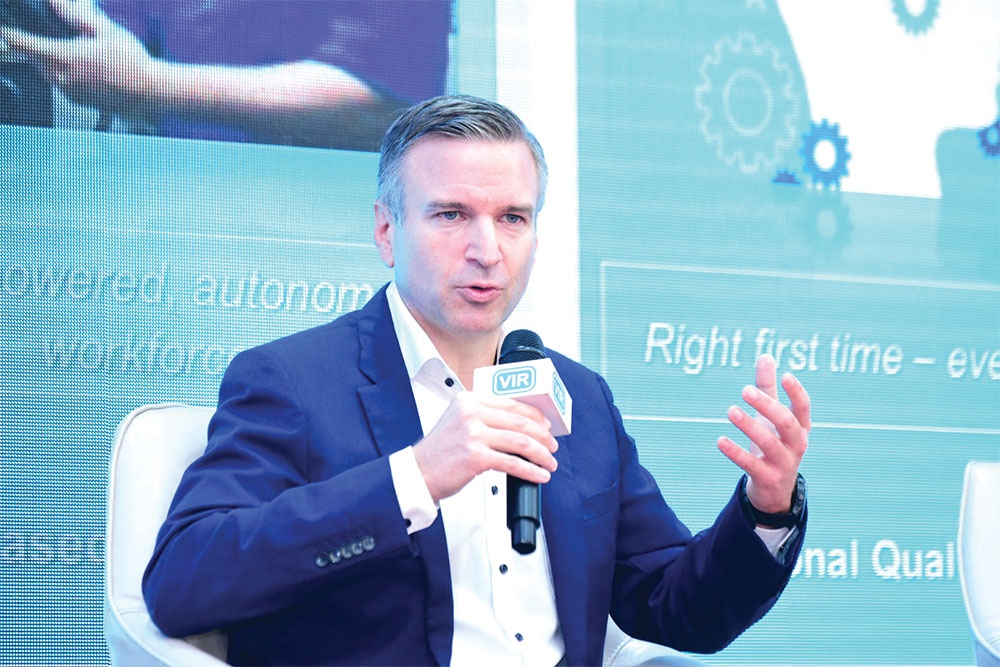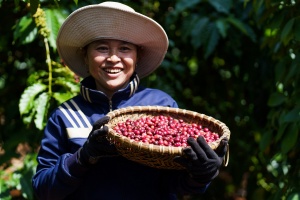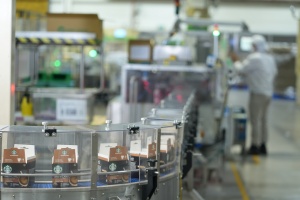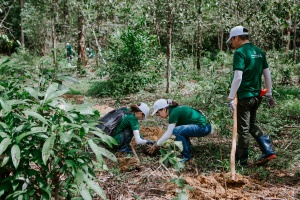Digitalisation: a story of both technology and people
For enterprises, constructing and managing a smart factory is not a simple endeavour. How does the concept increase production, efficiency, and competitiveness?
 |
| Urs Kloeti, factory manager at Nestlé Vietnam |
Nestlé’s approach to digital transformation in manufacturing in Vietnam, as well as internationally, is to search out real prospects that we completely comprehend and that allow us to save money and/or obtain growth potential within the limitations of emerging technologies.
At the same time, digital transformation at Nestlé is a narrative about both technology and people. It enables us to connect all corporate personnel more efficiently and proactively. We have created a number of internal networks comprised of current teams in each of our main sectors, and we are now constructing similar networks in each market in order to identify opportunities for improvement and seek the most appropriate apps to address these issues.
In the majority of instances, we also identify new technologies bottom up from factories/markets, and this process is sped up by the aforementioned network.
Digital transformation contributes to the achievement of real business outcomes, such as reducing production downtime by 60 per cent, boosting productivity and product quality by leveraging smart sensors and digital data. Digital transformation also as the same time accelerate green transition by reducing natural resources usage and increasing energy efficiency.
In Bong Sen factory, it reduces paper use in manufacturing by half, by expediting the implementation of digital processes. And it enabled a 20 per cent drop in maintenance expenses, thanks to predictive sensors and highly-skilled operators and technicians.
How does manufacturing benefit from the digital evolution?
The digitalisation of data has been facilitated by the manufacturing industry’s digital revolution, which has given us numerous advantages. By transforming digitally, we maximise both our performance and sustainability potential.
As a result, we realise annual carbon emission savings of up to 38,000 metric tonnes. We have to ensure that everyone in the organisation is capable of adapting to change as a result of digital transformation, which is altering the way workers work and which requires a different skill set. Hence, it is our job to guarantee that our workers’ knowledge and abilities are continuously enhanced via training and development opportunities.
Along with this, we will continue to invest in the appropriate technology to digitise data using data analysis tools and optimising connected data in order to accomplish more in sustainability. We emphasise innovation in our operations to minimise energy and water usage over time, and we will continue to use technology as a tool to help us reach net-zero emissions by 2050.
How has Nestlé introduced new technologies to Vietnam in order to achieve the goal of sustainable development?
We address the possibility of digital transformation with a technology selection method focused on examining the advantages brought by technology as opposed to just chasing it. This signifies that we will digitalise any portion of our value chain if we determine that it will serve Nestlé, the environment, and society.
We have been collaborating with local and foreign technology suppliers to fulfil our goals. We are now conducting projects employing solar energy, heat pumps for energy recovery, water treatment technology, and biomass energy to reduce our footprint on carbon emissions and water usage.
In each of these initiatives, digitalisation has played a crucial role in bringing us closer to our net-zero objectives. Since we have been consistently voted the most sustainable company in Vietnam over the past few years, we are grateful to have contributed to the realisation of Vietnam’s aspirational commitment through our comprehensive efforts, from production to supply.
How does Nestlé spread awareness of this digitalisation under Vietnamese conditions?
We don’t see digitalisation awareness as a limitation. For us, it’s a big opportunity; it’s an enabler to achieve our targets and goals. Maybe we approach it in a more pragmatic way, rather than hunting for high technology outside without seeing where we have a gap and where digitalisation or technology could close that gap. For us, it’s really more of a practical approach from that point of view. So for us, truly, it’s an enabler.
In terms of awareness here, we look at rural areas in Vietnam and work with coffee farmers. We have, for example, a large base of coffee farmers in Vietnam. We find that they are also interested in working in a more digital way with us in order to become more efficient and sustainable. So that’s an area for us that we will definitely explore further, to really bring digitalisation to more rural areas, such as the coffee farming areas of the Central Highlands.
 | Nestlé Vietnam supports 8,000 disadvantaged people for Lunar New Year Nestlé Vietnam, in collaboration with different organisations, has granted thousands of gift packages to 8,500 workers, students, and families across the country, especially those in remote and border areas. |
 | Nestlé recognised in Bloomberg Gender-Equality Index 2023 With its efforts to promote gender equality within the workplace and supply chain, Nestlé has been recognised in the 2023 Bloomberg Gender-Equality Index (GEI) for the fifth consecutive year. |
 | Nestlé boosts exports of high-value products made in Vietnam Nestlé Vietnam continues to strengthen production and diversify export products to help Vietnam become a centre of global food and beverage (F&B) supply. The company expects its export activities to achieve double-digit growth in 2023. |
 | Nestlé recognised for efforts to protect forests According to Global Canopy’s “Forest 500” report, Nestlé is ranked as one of the Top 3 businesses with a strong commitment to minimising the risks of deforestation. |
What the stars mean:
★ Poor ★ ★ Promising ★★★ Good ★★★★ Very good ★★★★★ Exceptional
Related Contents
Latest News
More News
- PM outlines new tasks for healthcare sector (February 25, 2026 | 16:00)
- Ho Chi Minh City launches plan for innovation and digital transformation (February 25, 2026 | 09:00)
- Vietnam sets ambitious dairy growth targets (February 24, 2026 | 18:00)
- Masan Consumer names new deputy CEO to drive foods and beverages growth (February 23, 2026 | 20:52)
- Myriad risks ahead, but ones Vietnam can confront (February 20, 2026 | 15:02)
- Vietnam making the leap into AI and semiconductors (February 20, 2026 | 09:37)
- Funding must be activated for semiconductor success (February 20, 2026 | 09:20)
- Resilience as new benchmark for smarter infrastructure (February 19, 2026 | 20:35)
- A golden time to shine within ASEAN (February 19, 2026 | 20:22)
- Vietnam’s pivotal year for advancing sustainability (February 19, 2026 | 08:44)

 Tag:
Tag:




















 Mobile Version
Mobile Version